

Our mission is to provide professionally trained Civil Engineers for all type of civil engineering services. Increase the supply of efficient & highly skilled Civil Engineers and serve the Civil Engineering Community.
Read More
If you want to learn MS Power point and make an outstanding power point presentation, this is the ideal course for you to start. The course gives you opportunity to learn MS Power Point from basics to advance levels. In the first module, you will learn about the following topics - MS Power Point Interface, Ribbon, quick access toolbar, view & navigate and creating a new power point presentation. In the second module, you will learn adding text to titles, working with slide layouts, bullet listings, etc. In third module, you will learn adding colours, gradient, adding images and how to apply background. In fourth module, you will learn adding text box, adding shapes arranging shapes, etc. In fifth module, you will learn insert tables, charts, smart art, videos and presentation delivery.
Read more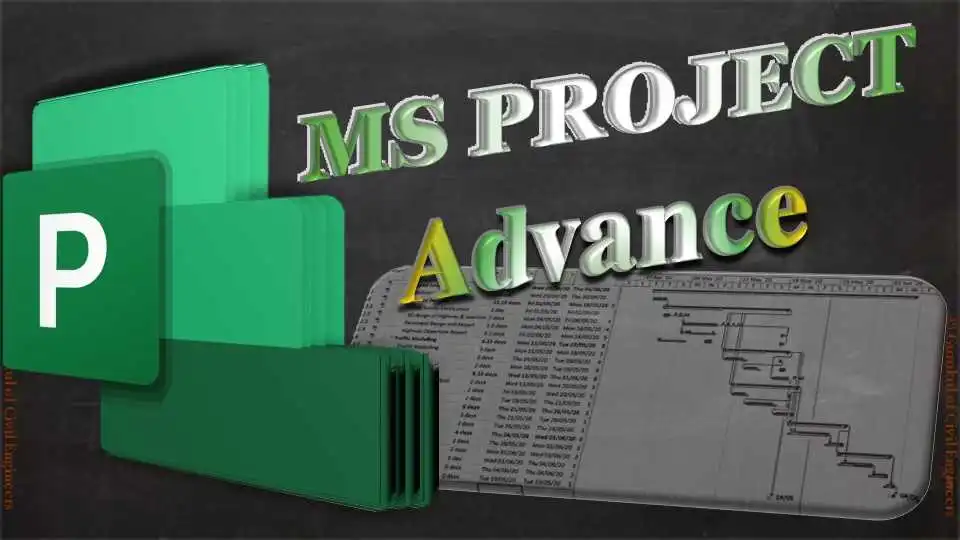
This is an advance course covering detailed procedure of project planning using MS Project as a tool. A hands-on civil engineering project program is developed and step by step process is explained for the student to learn how to plan, analyse, and manage projects. Students will witness state-of-the-art methodologies to develop the project program. The first module provides a detailed process of moving a project forward and backwards. It’s very common that project start date moves and it’s very important to know how to move the project. The course also provides details of setting the baseline of the program. This will help to monitor the project program as the project progresses. The second module provides a complete process of setting the Work Breakdown Structure (WBS). The WBS is like an index page of a book and its very useful to develop WBS for a project especially if the project programme is lengthy and complex. The third module provides a detailed process of assigning project resources to each activity along with hours for each resource. The module then explains the process to determine the overall project cost as well as the breakup of cost for each task and sub-tasks. This process helps Project managers to optimise overall project costs for any bidding or tender activity. The fourth module covers the complete process of updating tasks. There are three ways to update the tasks of a project and all three ways are explained with its unique advantages. The module also covers the process of updating a project before comparing it with the baseline. The fifth module covers the detailed process of analysing critical path activities and associated features. This will help the project manager to take extra care of critical activities so that project doesn’t slip and become a loss-making project. The sixth module provides a detailed process of checking task slippage from the baseline and how it impacts the project programme duration. The seventh module provides details of Calendar and Network Diagram view. These views are very easy to understand and provide clear visibility to team members about their activities, even they are not efficient to understand giant chart view of a project program. The eighth module provides a detailed process of setting a Timeline view of a project. It provides a summary chart of the project so its very hands to share with the project team and client for progress meeting and monitoring. The ninth module provides details of printing various project report such project report, project cost, project assignments, project workload and also customised way to develop project reports.
Read more
If you are a MS Word novice and want to learn MS Word, this is the ideal course for you to start. The course gives you opportunity to learn MS Word from basics to advance levels. In the first module, you will learn about the following topics -creating word document, start-up window, quick access toolbar, MS Word Interface, Ribbons and Open/Save word file. In the second module, you will learn basics of entering texts, how to enter text. edit text, navigation text and word shortcuts. In third module, you will learn how to perform formatting in MS Word, bullet/ numbers, formatting texts, mini toolbar, MS word styles and custom word styles. In fourth module, you will learn page layout techniques. You will learn MS word margins, page breaks, orientation, header and footers, page background. In fifth module, you will learn spell checker, auto correct, find & replace and Printing process.
Read more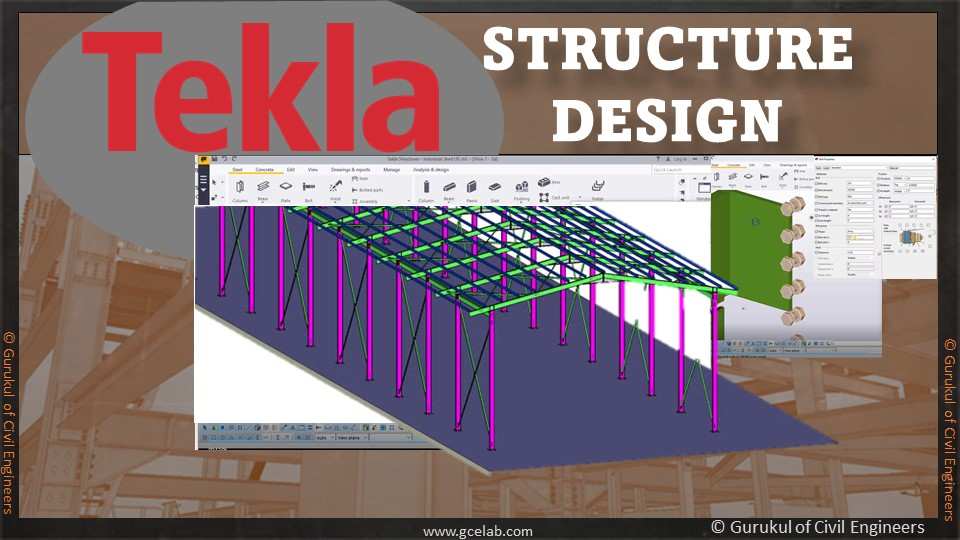
Tekla Structure is the most advanced structural BIM software that assists designers to create, combine, manage and share multi-material 3D models packed with invaluable construction information. Right now in the BIM (Building Information Modelling) environment, Tekla Structures is one of the best and powerful software for any kind of structure design. We cover the entire Tekla Structure Design Course in the following modules: The first covers Introduction to Tekla, advantages, and interface of Tekla operations. The second module covers the modelling tools used in Tekla Structures software. The third module covers the modelling of an industrial shed and its elements like columns, rafters and purlins. The fourth module covers the modelling of the industrial shed and its elements like bracing and side runners. The fifth module covers drawing production and explains the process of generating General Arrangement Drawings. The sixth module covers moment connections. The seventh module covers shear connections. The eighth module covers the creation of template connections and the modelling of typical connections. The ninth module covers numbering checks, modelling checks and clash checks. The tenth module covers the preparation of fabrication drawings.
Read more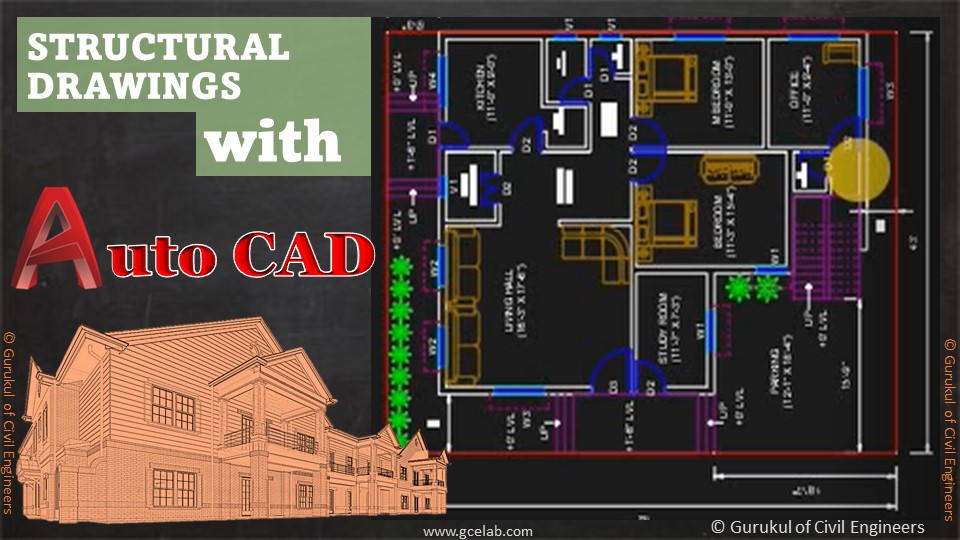
Preparing structure drawing is one of the most tedious tasks, to say the least, and when the structure is highly complex with plenty of structure details, that adds further complexities for CAD Technicians and Engineers. That’s why we develop this course and address various stages and procedures to develop Structure drawings using AutoCAD. The first module covers Introduction to AutoCAD and its basic interface. The module also shares all the details of the menu, command windows, pop-down windows and other operational details. The second module covers the basic setting of AutoCAD, basic functions, and interfaces. The third module explains how to use various toolbars in AutoCAD. Some toolbars are very useful for structure drawing preparation. The fourth module explains how to develop an architecture plan and develop each component of the plan layout. The fifth module is the continuation of architecture plan development and structure details development. The sixth module explains how to place columns in the building plan layout and then how to develop column layouts and associated details in the drawing. The seventh module explains how to place beams within the building plan layout and how to develop beam layouts and associated details in the drawings. The eighth module explains how to develop the Slab Layout of the building plan layout. The ninth module covers the shuttering layout development. The module also covers the foundation layout development. The tenth module covers the reinforcement detailing the process of beams, columns and slabs.
Read more
Skill Improvement Leads to Employability:- GCE Evaluates & Provides a Detailed Performance Result.
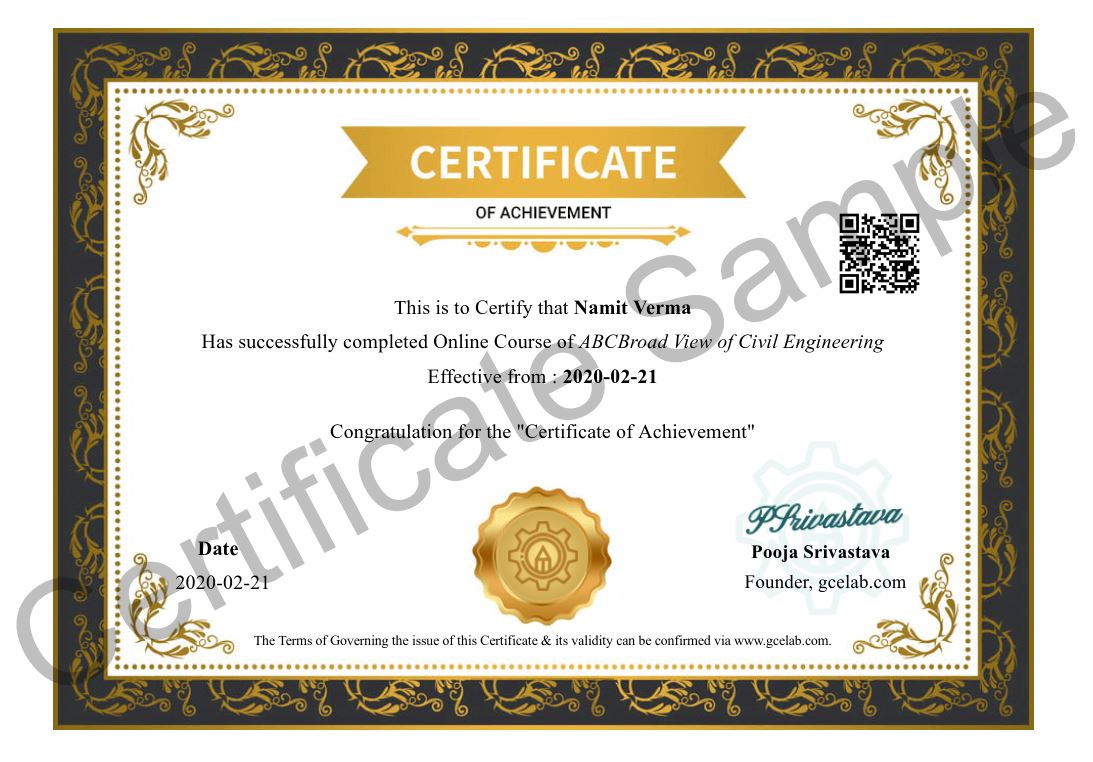
At GCE, we provide course completion certificates of all courses. Our certificate comes with unique QR Code to validate it online & download it whenever needed.
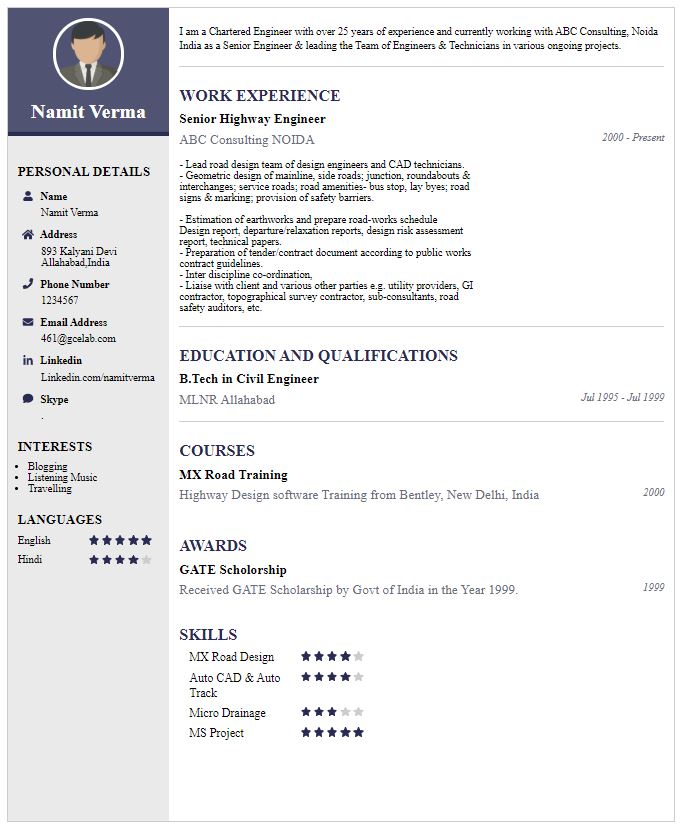
We build your CV with professionally designed Resume Builder Application. Our Resume Builder is not just another resume creation tool; it is the finest tool to present your career graph.
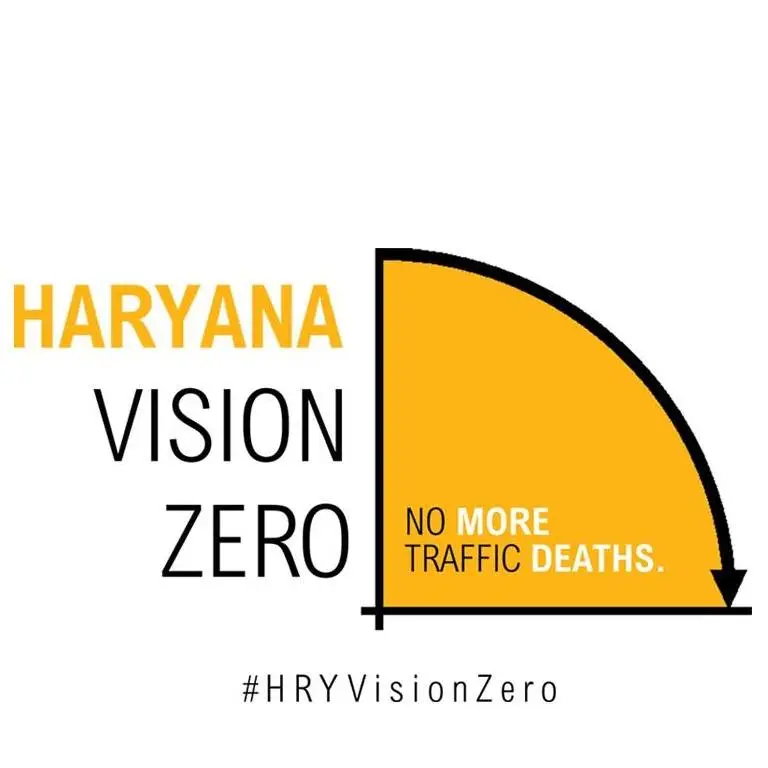












Our mission is to provide professionally trained Civil Engineers for all type of civil engineering services....
Copyright © 2026 Gurukul of Civil Engineers | All Right Reserved | Design & Developed By Ntier Infotech India.



